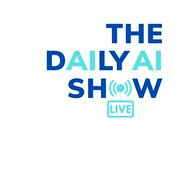AI is becoming infrastructure. Not just software you buy, but a layer that shapes how a country teaches students, triages patients, allocates benefits, predicts shortages, and runs public services. For many developing nations, the fastest path to better outcomes is not to build that infrastructure from scratch. It is to import it. Plug into US frontier models through cloud providers, or deploy low-cost open-source stacks and hardware shipped from abroad. The pitch is simple, skip decades of slow institution-building and leap straight to modern capability.
But “importing AI” is not like importing cell towers. AI does not just transmit information. It classifies, prioritizes, recommends, and explains. It quietly sets defaults. It nudges behavior. It creates what feels like common sense. When that intelligence layer comes from outside your borders, it carries assumptions about language, values, risk, authority, and even what counts as truth. Those assumptions show up in tutoring systems, clinical guidance, credit scoring, policing tools, and civil service automation. Over time, the imported system does not just help run society, it starts to shape how society thinks.
The conundrum:
If a nation can raise living standards quickly by adopting foreign-built AI, is that a practical modernization step, or a long-term surrender of cognitive independence? Once AI becomes the operating layer for education, healthcare, and government, you cannot separate “using the tool” from adopting its worldview.
Yet rejecting imported AI can mean staying stuck with weaker services, slower growth, and worse outcomes for citizens who cannot wait. How do you justify either choice, accelerating welfare today by outsourcing foundational intelligence, or preserving sovereignty by accepting slower progress and higher near-term human cost?



